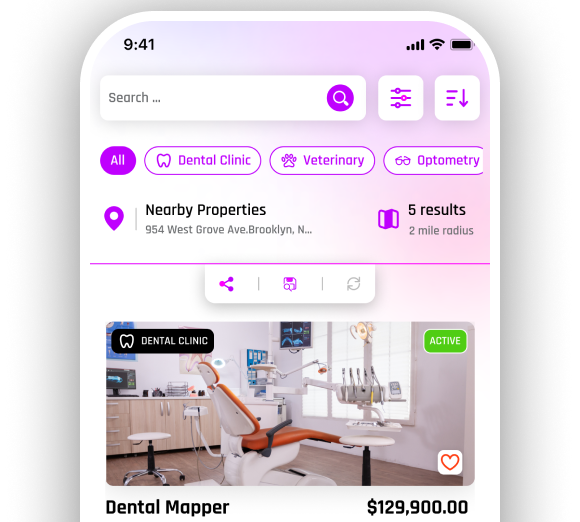Navigating Loan Options for Dental Practice Expansion

Expanding your dental practice is a strategic move that can increase profitability, serve more patients, and position your brand for long-term success. However, turning that vision into reality often requires a significant financial investment. Whether you’re adding operatories, acquiring cutting-edge equipment, or opening a second location, securing the right loan is a critical step in the process.
Financing a dental practice expansion isn’t one-size-fits-all. There are various loan structures and lenders to consider, each with its own pros, cons, and eligibility criteria. Understanding your options—and how to evaluate them—can mean the difference between sustainable growth and a costly misstep.
In this guide, we’ll walk through the most common loan types, key factors to consider, and how to prepare for the lending process with confidence.
Decoding Smart Financing Matters
Dental practice expansions often involve costs that go beyond what’s visible upfront. Construction overruns, staff onboarding, new software, and temporary disruptions to patient flow can all affect your financial stability. That’s why choosing the right financing solution is about more than just low interest rates—it’s about ensuring cash flow flexibility and long-term ROI.
Most dental practice loans fall between $350,000 to $500,000, depending on the scope of the project. Lenders typically assess your practice’s cash flow, credit score, production history, and business plan before offering terms.
And if you're browsing a medical practice to buy and plan to expand it post-acquisition, having financing lined up can make your offer far more competitive.
Top Dental Practice Loan Options to Consider
Expanding a dental practice requires strategic planning—and financing is a key part of that journey. Understanding your loan options helps ensure your growth plans align with your financial goals. Let’s explore the most common financing types available to dental professionals and how they align with different expansion goals.
1. Traditional Bank Loans
Best for: Established practices with strong credit and financials.
These loans offer lower interest rates and longer repayment terms (up to 10 years), but they typically require:
-
High credit scores
-
Detailed business plans
-
Collateral (e.g., equipment, real estate)
Banks like Wells Fargo, Bank of America, and PNC offer specialized healthcare lending programs. While the approval process can be lengthy, these loans are ideal for large expansions such as buying a building or renovating an existing medical office for sale into a high-tech dental facility.
2. SBA (Small Business Administration) Loans
Best for: Practices needing flexible repayment and lower down payments.
SBA 7(a) and 504 loans are government-backed, making them less risky for lenders and more accessible for borrowers with limited collateral. Benefits include:
-
Longer repayment periods (10–25 years)
-
Lower down payments (as little as 10%)
-
Competitive interest rates
However, SBA loans involve more paperwork and stricter compliance. They're a great option if you’re expanding a practice in a competitive area or buying a second location.
3. Equipment Financing
Best for: Purchasing dental chairs, imaging systems, or dental equipment for sale.
Equipment loans are fast and often easier to qualify for because the equipment serves as the collateral. These loans generally:
-
Have terms of 3–7 years
-
Cover 100% of the equipment cost
-
Can be approved in days
This type of financing is ideal when you're upgrading to attract new patients or meet increased demand without overextending working capital.
4. Business Line of Credit
Best for: Managing cash flow or covering unexpected expansion costs.
A business line of credit provides flexible, revolving access to capital. Instead of receiving a lump sum, you draw funds as needed—similar to a credit card but with lower interest rates. It’s perfect for:
-
Paying contractors or suppliers
-
Managing seasonal revenue shifts
-
Covering minor remodels or equipment upgrades
This is a strategic tool to keep on hand, even if you aren’t actively expanding. Many dentists use it to supplement other loans or maintain liquidity.
How to Prepare for the Loan Application Process?
Before applying for financing, take these essential steps to position yourself for approval and favorable terms:
Organize Your Financials
Lenders want to see:
-
2–3 years of tax returns
-
Profit & loss statements
-
Cash flow reports
-
Personal financial statements
Clear, accurate records show that you’re a low-risk borrower. If you’ve worked with a CPA, ask them to package these into a lender-friendly summary.
Write a Solid Business Plan
Especially if you're opening a new practice or adding a location, a business plan should outline:
-
Expansion goals
-
Market opportunity
-
Revenue projections
-
Staffing and equipment needs
If you're acquiring a private practice for sale and expanding it, include the practice’s historical performance and how you plan to improve it.
Know Your Credit Score
A personal credit score above 680 is usually required, but the higher, the better. Some lenders also check your business credit profile, especially if you’ve had prior loans or leases.
Work With a Specialist Lender
Dental-specific lenders understand the industry’s cash flow cycles, overhead norms, and growth patterns. They may also offer bundled solutions like startup consulting, real estate lending, or equipment packages.
Some lenders partner with platforms like the PracticeFinder App, offering pre-approved buyers faster funding when they find the right listing.
Top 5 Common Mistakes to Avoid
When evaluating your loan options, be careful to avoid these pitfalls:
-
Borrowing too little: Expansion costs often exceed estimates. Add 10–20% buffer for unexpected expenses.
-
Choosing based on rate alone: Low rates can hide hidden fees or prepayment penalties.
-
Not comparing offers: Always review multiple lenders and loan terms before committing.
-
Over-leveraging: Ensure your practice can comfortably support the debt even if collections dip.
-
Ignoring loan covenants and terms: Many practice loans come with clauses that restrict how funds can be used or require maintaining specific financial ratios. Failing to understand these terms can lead to violations, penalties, or even loan recalls. Always read the fine print—or have a financial advisor review it.
Taking on debt without a clear ROI plan can create cash flow issues that harm your business and personal finances.
Expand With Confidence, Not Risk
Expanding your dental practice is an exciting opportunity to grow revenue and better serve your community. But it requires smart financial planning and the right funding structure to ensure success.
By exploring your loan options carefully, preparing solid documentation, and working with lenders who understand dental practice operations, you’ll be well-positioned to secure financing that supports your goals—without straining your bottom line.
Need help financing your next dental expansion or acquisition?
The PracticeFinder App connects dentists with verified listings, expert transition partners, and access to dental-specific financing support.
Explore dental practice listings, expansion tips, and lender resources at PracticeFinderMedia.com.

